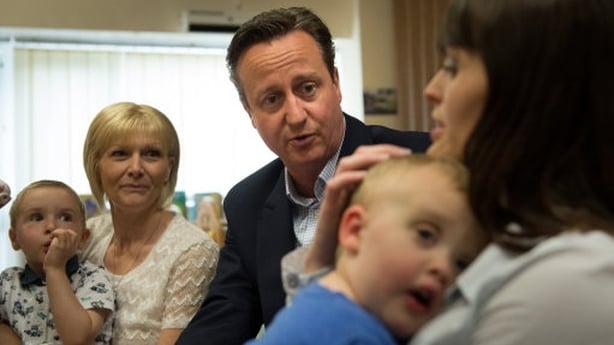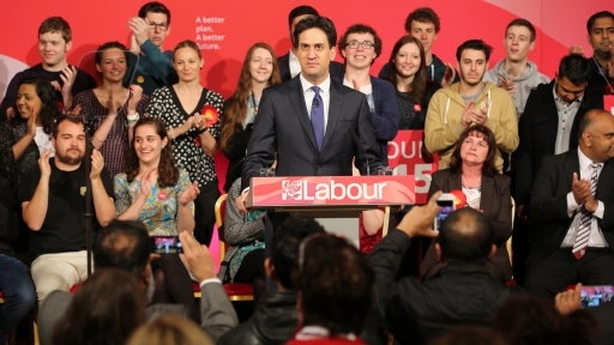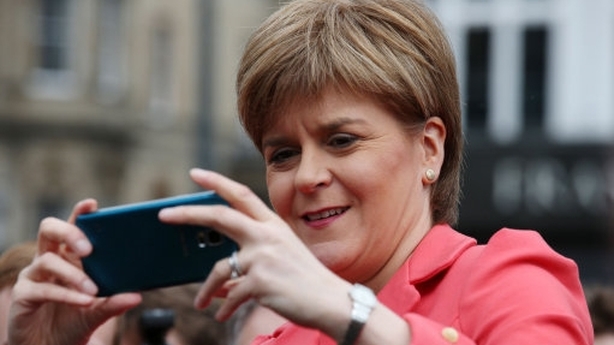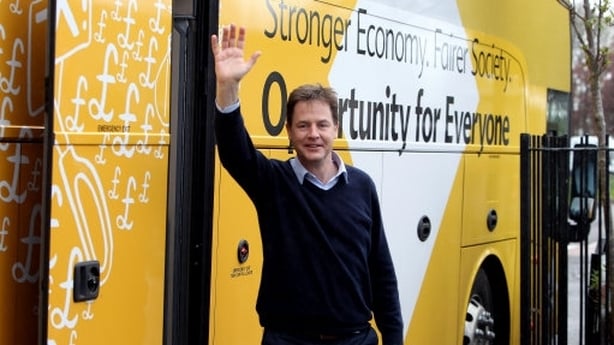The final day of the campaign for tomorrow's British General Election is under way.
Party leaders are criss-crossing the country in a last-minute appeal to voters facing what Nick Clegg described as "the biggest political decision of their lives".
The Liberal Democrat leader accused David Cameron and Ed Miliband of "sleepwalking" towards "messy and unstable" minority government because of their unwillingness to discuss the form of coalition they want if the election result is inconclusive.

Both the Conservative and Labour leaders insisted they were still hoping to secure an absolute majority in the House of Commons.
This is despite opinion polls suggesting they remain neck-and-neck and Britain is heading for another hung parliament.
A new survey by TNS UK put Tories on 33%, a single point ahead of Labour on 32%, with Ukip on 14%, Lib Dems on 8% and Greens on 6%.
The pollster's Michelle Harrison said the parties were in "stalemate" and the "real drama" would not begin until results are out on Friday.
Miliband in a minute: Watch a one minute guide to the man who could be Britain’s next Prime Minister #GE2015 https://t.co/q6Yy78oB2n
— RTÉ News (@rtenews) May 6, 2015Read brief profiles of the party leaders here
Campaigning in the north of Britain, Mr Miliband told BBC Radio 5 Live he was "not countenancing defeat" and would go "right down to the wire" to persuade wavering voters in the remaining hours before polls open at 7am.
 But he again repeatedly refused to be drawn on what form negotiations might take in the event of a hung parliament.
But he again repeatedly refused to be drawn on what form negotiations might take in the event of a hung parliament.
Mr Cameron insisted he had not spent "any time" during the campaign preparing for the possible need to forge a new coalition.
The Prime Minister told ITV1's Good Morning Britain: "We hold 303 seats. We need another 23 in order to deliver that majority. I think that is the right answer for Britain.
"I think people want to see strong, decisive and frankly accountable government, where what's in your manifesto gets delivered, and there's still time for that to happen."
However, Mr Cameron later appeared to indicate that he would be prepared to work with Mr Clegg, pointing out that he agreed a coalition in 2010 to provide "strong, stable government", and adding: "I will always put the interests of the country first.
That is what a prime minister should do, that is what I do."
Mr Cameron spoke with night-shift workers and made a breakfast visit to a farm in Brecon, mid-Wales, as he swept across the country in a 36-hour non-stop final campaign drive.
He accused Mr Miliband of planning a "con trick" to get into Downing Street on the back of support from the Scottish National Party and said there would be a "real question of credibility" if his rival entered Number 10 without being leader of the largest party.
"This whole thing about a Labour government backed by the SNP in government people feel deeply uneasy about, because it would be a government held to ransom by a group of people that don't want the UK to succeed," said Mr Cameron.
SNP leader Nicola Sturgeon said an inconclusive result would amount to a message from voters that they want politicians to "work together".

"All politicians have a duty on Friday morning to respect the outcome, and if the voters across the UK decide not to give Labour or the Tories a majority, that means they want the parties to work together," Ms Sturgeon told the BBC.
"My message has been the same throughout this campaign - if there is an anti-Tory majority on Friday morning we should work together to get the Tories out but then make sure they are replaced with something better, bolder and more progressive."
As Mr Clegg's 1,000-mile battle bus odyssey from Land's End to John O'Groats reached Scotland, the Deputy Prime Minister insisted his party had "momentum" and would provide "the surprise story of the election".
 "We are going to do so much better than anybody thinks," said Mr Clegg. "We will win against Labour. We will win against the Conservatives. And we will win against the SNP," he said.
"We are going to do so much better than anybody thinks," said Mr Clegg. "We will win against Labour. We will win against the Conservatives. And we will win against the SNP," he said.
Mr Miliband insisted he was "optimistic" he would be prime minister, telling broadcasters: "I'm going right up to the line, right down to the wire talking about the issues that matter to the British people, which is the NHS, their family finances, whether they can pay the bills at the end of the month, those bread-and-butter issues that matter most to the British people."
Labour's deputy leader Harriet Harman insisted the party was not involved in discussions about possible post-election pacts.

